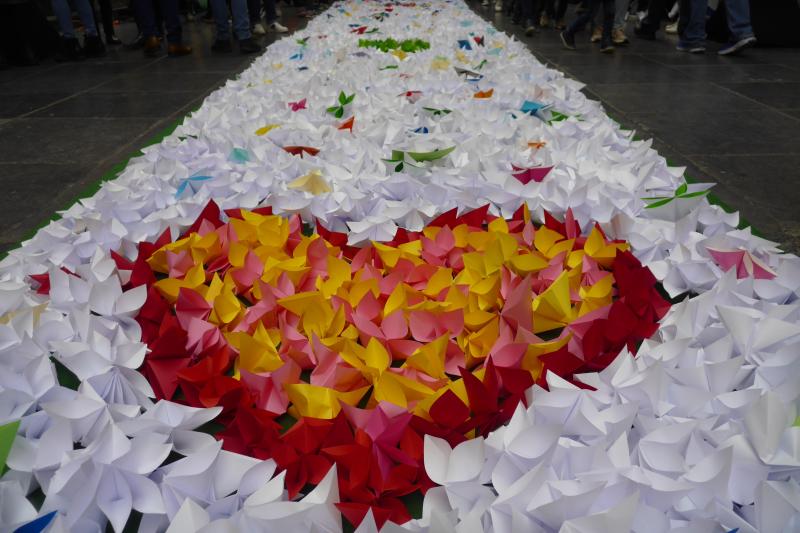Visitors to the Saint-Hubert galleries in the centre of Brussels were able this weekend to enjoy a huge flower carpet made up of 10,000 origami versions of the edelweiss.
The installation is there to mark Rare Disease Day on 29 February, organised by the Belgian Rare Diseases Organisation (RaDiOrg).
A disease is considered rare when it affects fewer than 1 in 2,000 residents, the organisation explains.
“Rare diseases are usually serious and complex. Many rare diseases are life-threatening or chronically debilitating. Most rare diseases cannot be cured, but with a correct diagnosis, the symptoms can often be treated, which improves the quality of life and patients live longer. Seventy-two percent of all rare diseases are genetic disorders.”
The category includes 6,100 different diseases qualified as rare (listed here), affecting 5% of the world’s population. By far the majority are genetic disorders, and about one in three children diagnosed with a rare disease will die before their fifth birthday.
One of the problems lies with diagnosis. In some cases, it can take as long as four years to arrive at a correct diagnosis, simply because the condition is so rare. And if a diagnosis is available, the treatment available – if there is one – is often prohibitively expensive.
Access to expertise is a problem, explains Jonathan Ventura, the organisation’s spokesperson.
“Six years ago, Belgium adopted its first rare diseases plan, which was like a breath of fresh air for patients. But today we realise that nothing has actually changed in the field. There have been administrative and regulatory developments, but no developments for the patient,” he said.
“We are coming back now with our original demands, particularly the creation of centres of expertise. The expertise does exist in Belgium, but it is scattered.”
To brighten up Rare Diseases Day, volunteers from across the country spent the last few weeks folding paper to make origami flowers, the edelweiss considered a rarity.
Alan Hope
The Brussels Times

